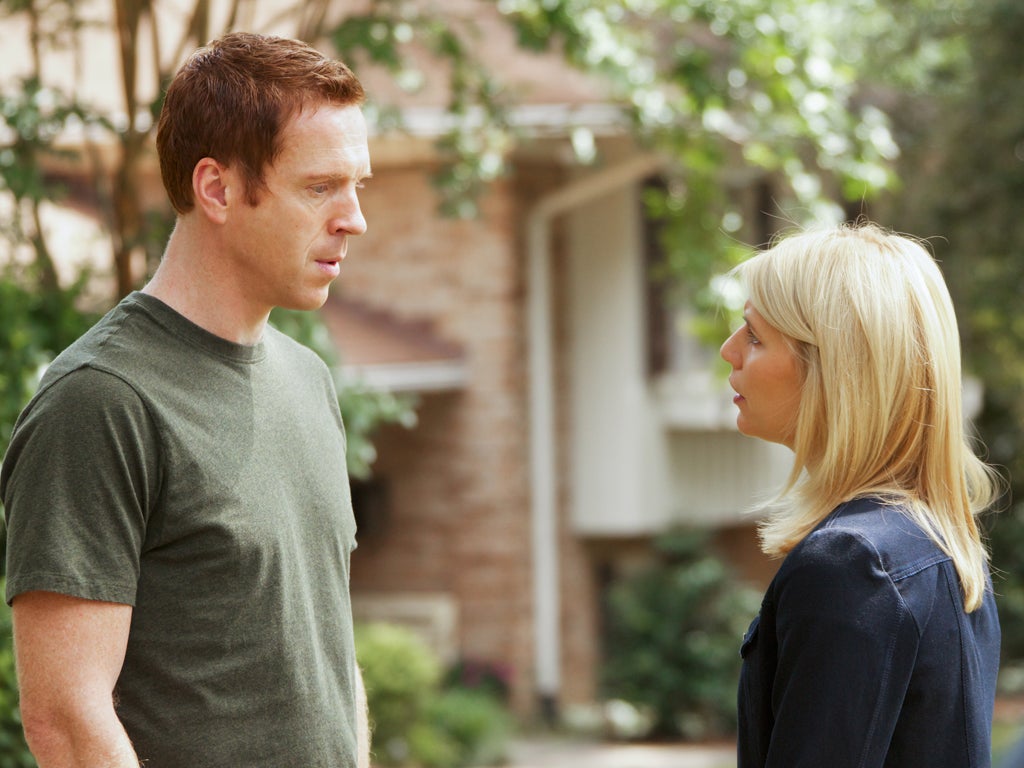Why do British TV dramas fail to match the imports?
It's the human factor in Homeland that makes it thrilling

Your support helps us to tell the story
From reproductive rights to climate change to Big Tech, The Independent is on the ground when the story is developing. Whether it's investigating the financials of Elon Musk's pro-Trump PAC or producing our latest documentary, 'The A Word', which shines a light on the American women fighting for reproductive rights, we know how important it is to parse out the facts from the messaging.
At such a critical moment in US history, we need reporters on the ground. Your donation allows us to keep sending journalists to speak to both sides of the story.
The Independent is trusted by Americans across the entire political spectrum. And unlike many other quality news outlets, we choose not to lock Americans out of our reporting and analysis with paywalls. We believe quality journalism should be available to everyone, paid for by those who can afford it.
Your support makes all the difference.Sunday night television this early spring was supposed to be all about Upstairs Downstairs and Titanic, and while the BBC reboot of the Seventies costume drama managed to keep its head above water, ITV's sinking-liner epic started listing badly soon after launching. Well over half of the Julian Fellowes's seven-million strong passenger list had abandoned ship long before Titanic finally succumbed to the iceberg two Sundays ago, and if they had any sense they will have steered their lifeboats in the direction of Channel 4's Homeland, an American remake of an Israeli drama that has held up to three million viewers in its clutches. Homeland has been the most talked about new drama import since The Killing – and quite rightly so.
Indeed, Homeland bears several important similarities to The Killing, not least in having a lead female protagonist with tunnel vision and the knack of antagonising her superiors, although Carrie Mathison, the pill-popping, bipolar CIA agent has been granted far more back story than Sarah Lund. She's a fan of Thelonious Monk for starters, and we're not even sure whether Lund even listens to music .
Claire Danes, who has remained just to the left of the A-list spotlight since 1996 when she played Juliet to Leonardo DiCaprio's Romeo in Baz Luhrmann's Romeo + Juliet, has been a revelation as Carrie, the CIA agent who suspects that a US Marine, Nicholas Brody, discovered festering in an al-Qa'ida compound in Afghanistan, has been turned by the enemy. Some of her best scenes were early on as, having transformed Brody's marital home into a military version of the Big Brother House, she spied on his every move on her laptop, professional observation slowly turning into personal fascination.
And as with The Killing, Homeland takes regular plot swerves that play with our suspicions, Damian Lewis well cast as the opaque Brody. I've lost count of the number of people who've said to me recently, "I've never liked Damian Lewis before but...' and he is one of two British actors in the lead roles (David Harewood, with a dodgy American accent, plays Carrie's CIA boss), and if Laura Fraser hadn't been replaced as Brody's wife, Jessica, after the initial pilot there have been three – all of which raises the question why the BBC is unable, or unwilling, to make a topical drama with the same punch. Partly, it's a matter of the Beeb's aversion to long-form drama and partly, they might argue, because such post-9/11 concerns were already addressed by Spooks.
However, Homeland mixes relationship drama with high-stakes espionage much more deftly than BBC1's erstwhile MI5 saga, and the outcomes of the various tangled relationships – Carrie with Brody, Brody with his wife, Jessica, and Jessica with Brody's former best friend Mike – have been just as compelling as whether or not Brody really is plotting a 9/11-style atrocity. The tone of the series is set by the unsettling kaleidoscopic credit sequence that brilliantly summarises America's 25-year war on terror and mashes it with images of a youthful Carrie to show how an all-American girl might grow into an obsessed CIA agent.
The opening credits also reflect the drama's surprisingly mature and sceptical view of post-Iraq war America – you could call it 24 for grown-ups, and it was in fact co-developed by Howard Gordon, who masterminded the final season of 24. Perhaps more relevant is the fact that it was also the brainchild of Alex Gansa, the screenwriter who oversaw the first two series of The X Files. The truth is out there, and the truth is that Homeland is cracking television. We're not far off the end, however, so if you're still bobbing around in one of Titanic's metaphorical lifeboats, you may need to buy the box-set.
'Homeland' continues on Sundays at 9pm on Channel 4
Join our commenting forum
Join thought-provoking conversations, follow other Independent readers and see their replies
Comments